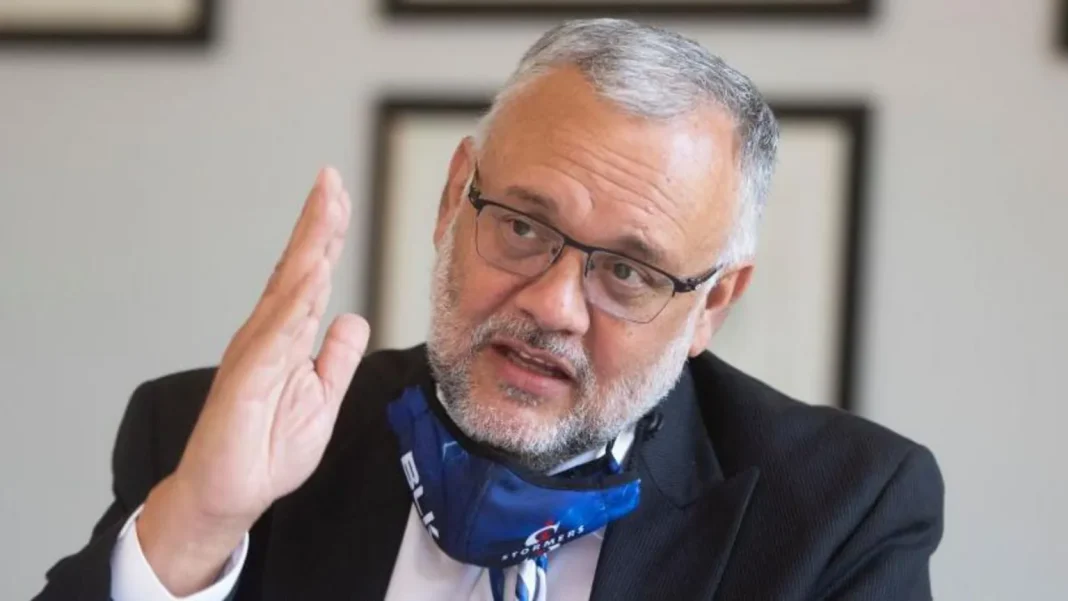South Africa’s former ambassador to the United States, Ebrahim Rasool, has accused the Trump administration of being “self-evidently” racist in a recent interview with the BBC. This statement came after Rasool was expelled from the U.S. following strong criticism of President Donald Trump’s policies, particularly regarding race.
Rasool had previously accused Trump of trying to “project white victimhood as a dog whistle,” a comment that led to a heated response from U.S. Secretary of State Marco Rubio, who branded Rasool a “race-baiting politician who hates America.” In his interview, Rasool suggested that the administration’s actions, such as its focus on deporting migrants and targeting foreign students supportive of pro-Palestinian protests, were indicative of a racial bias.
Rasool further emphasized that the connection between these actions and racism was “self-evident” and likened the situation to seeing a hinge on a piece of wood and concluding that it must be a door. He also accused Trump’s administration of mobilizing far-right groups, a claim the administration has denied.
The diplomat’s expulsion came at a time of heightened tensions between the U.S. and South Africa. Relations had already deteriorated due to Trump’s criticisms of South Africa’s land reform policies and his decision to cut all U.S. aid to the country. Trump has also controversially stated that members of South Africa’s white Afrikaner community should be granted refugee status in the U.S. due to alleged persecution, a claim Rasool dismissed as “an unadulterated lie.”
While Rasool’s language in his criticism of the U.S. government has been called undiplomatic, he defended his stance, saying that diplomacy should not be about flattering the host country or accepting lies. He added that his comments were made to alert the U.S. that South Africa’s dignity and truth were at stake, especially regarding false narratives about the country.
Rasool also pointed out that South Africa has been attempting to address its historical racial and economic imbalances through policies aimed at aiding the black majority, which he argued had been misrepresented by the Trump administration.
The diplomatic spat also touches on broader tensions, such as South Africa’s legal action against Israel over alleged genocide against Palestinians, and the U.S.’s cutting of aid due to the country’s new Expropriation Law, which allows land confiscation without compensation in certain cases. Despite the controversy, Rasool, who served as ambassador from 2010 to 2015, has no regrets about his remarks and remains firm in his position.

